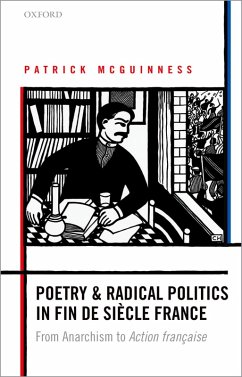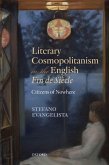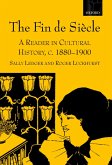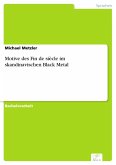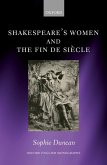Poetry and Radical Politics in fin de siècle France explores the relations between poetry and politics in France in the last decade of the nineteenth century. The period covers the most important developments in modern French poetry: from the post-Commune climate that spawned the 'decadent' movement, through to the (allegedly) ivory-towered aestheticism of Mallarmé and the Symbolists. In terms of French politics, history, and culture, the period was no less dramatic, with the legacy of the Commune, the political and financial instability that followed, the anarchist campaigns, the Dreyfus affair, and the growth of Action française. This study demonstrates the connections between the anti-Symbolist reaction of the école romane of 1891 (in which Charles Maurras first made his name) and the far-right cultural politics of Action française in the early twentieth century. It also redefines many of the debates about late nineteenth-century French poetry by complicating the political engagement of the Symbolists in an era when the French 'intellectuel' as a national icon was being forged. McGuinness insists on profound continuities between the end of the nineteenth century and the beginning of the twentieth in terms of cultural politics, literary debate, and poetic theory, and shows how politics is to be found in unexpected ways in the least political-seeming literature of the period. The famous line by Péguy, that everything begins in mysticism and ends in politics, has an appealing sweep and grace. This book has its own more modest and specific version of a similar journey: it begins in Mallarmé and ends in Maurras.
Dieser Download kann aus rechtlichen Gründen nur mit Rechnungsadresse in A, B, BG, CY, CZ, D, DK, EW, E, FIN, F, GR, HR, H, IRL, I, LT, L, LR, M, NL, PL, P, R, S, SLO, SK ausgeliefert werden.

